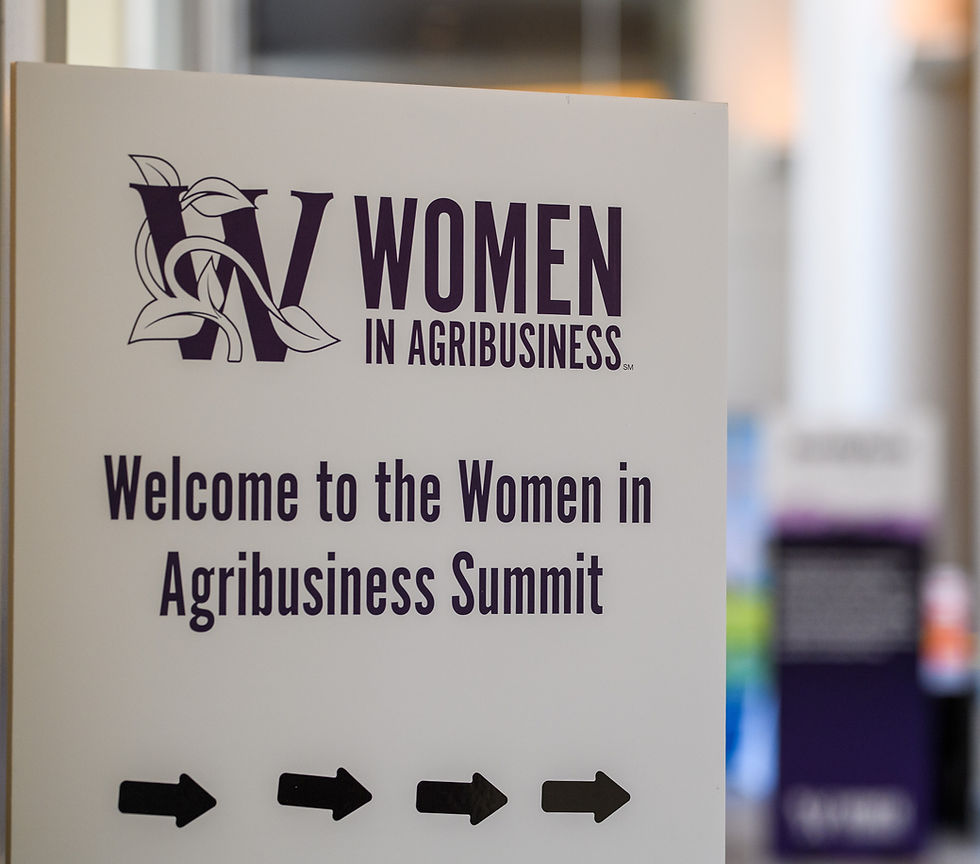How to Create a More Inclusive Agribusiness
- Jun 8, 2021
- 3 min read
By Yvette Owo, Executive Consultant, HighQuest Diversity, Equity & Inclusion Practice
Inclusion is the new normal… 2020 awoke many of us to the lack of diversity and inclusion in many sectors of our world. As we think about agribusiness… the key question is how can the food and ag industry benefit from this awakening? How do we progress Diversity, Equity, and Inclusion (DEI)?

Whether you’re reading articles from McKinsey, PWC, Deloitte, or Harvard Business Review, there is and has been a lot of data showing that a more diverse set of voices at the table is good for business. Results include avoiding groupthink, being more innovative and responsive to the market, and attracting and keeping top quality people.
Although there’s data to show the value of diversity, data alone hasn’t changed how most companies operate. Change requires us to do things differently, and we’re not always sure where to go. As we think about implementing DEI effectively, we need to think about the full employee experience from recruiting to existing.
Review the Entire Employee Lifecycle
That means addressing recruiting, training, career and performance management, and all the way to exit. That can seem overwhelming. But companies can do it one step at a time.
1. Create a vision of where you want to go.
2. Develop a strategy of what you believe is required to reach that vision. Know that it's okay to adjust the strategy as you roll it out. Strategy is living. (Come on, who didn’t adjust their strategy for COVID?).
3. Often when leadership teams struggle with the strategy, it’s a symptom of a deeper problem about a lack of alignment on the leadership team. In that case, initial workshops and training can help create the alignment necessary to move forward.
4. With a strategy in place, begin assessment of the employee lifecycle – start from the beginning with recruiting, or an area that’s currently a higher business priority.
5. As you touch each phase, be sure to review what’s already in place, measure Key Performance Indicators (KPI), use training to educate and improve skills, and use quantitative and qualitative feedback loops to see the data and hear from your people. The feedback loops help you iterate… to avoid pitfalls and stay on track. Training helps you shape the culture, establish common vocabulary, and increase the team’s skillet, helping you reach your DEI vision.
Top Mistake to Avoid
Having Human Resources (HR) drive this, without full ownership from the leaders with profit and loss responsibility, is a top mistake companies make over and over again.

The product line is where most people work, it drives the culture, and it brings in the revenue.
HR is a key stakeholder with an important responsibility to help guide and structure the DEI journey. The business units have an equally important responsibility to demonstrate the importance of diversity in their organizations, to collaborate with HR, and to implement DEI initiatives. HR and the business units co-create these programs and see to it that they are made an important aspect of a healthy workplace.
It can be easy to see diversity, equity, and inclusion as too much or too unsure. But the reality is that the world is changing so there are more diverse candidates for positions, people who are underrepresented in companies are tired of feeling unheard, data shows that diverse voices help the bottom line, and it’s the companies that embrace this change thoughtfully that can benefit most from it.
Hear more from Yvette at the upcoming HighQuest Partners Ag Club “How DEI Can Build A World-Class Diverse Team” on Tuesday, June 22, beginning at noon EDT.
ABOUT YVETTE OWO

Yvette Owo is a consultant and coach who helps companies realize increased diversity, equity, and inclusion (DEI), as well as sustainable business profitability, process, and team improvements.
Owo is a leader who not just understands that DEI is good for business, but how to develop and execute on DEI strategy and training so it supports the overall business goals. DEI becomes an enabler for the business to reach the mission, vision, and targets.
Previously, Owo had been a senior business strategy manager for more than a decade with Accenture, advising Fortune 500 and Global 1000 companies on product launches reaching 1.6 million customers, managing strategic cost reduction programs of over $2 billion and M&A deals of more than $26 million, and also improving global DEI initiatives and outcomes. She is a financial literacy speaker who has guided over 5,000 people in investing over 10 million dollars. She holds bachelor’s degrees in management and government from the University of Texas at Austin. Owo is based in sunny Houston, Texas, and can be reached at yowo@highquestpartners.com.








